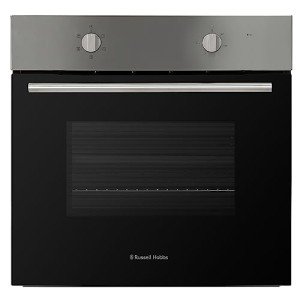
The Comprehensive Guide to In-Built Ovens
In-built ovens, also known as built-in ovens, are a necessary function in modern-day kitchens, combining performance and design in one design. With developments in technology and a growing emphasis on cooking experiences, inbuilt ovens have actually ended up being progressively popular for both amateur cooks and professional chefs. This short article supplies a substantial summary of inbuilt ovens, their advantages, types, setup, upkeep, and responses to frequently asked concerns.
What is an In-Built Oven?
An inbuilt oven is a kitchen appliance that is developed to be integrated into kitchen cabinetry or walls, using a smooth appearance. Unlike standard freestanding ovens, built-in ovens are suited designated areas and are typically coupled with other appliances, such as built-in microwaves or warming drawers, for a cohesive kitchen style.
Benefits of In-Built Ovens
Built-in ovens offer a number of benefits over conventional ovens. Some of the crucial advantages consist of:
- Space Efficiency: Built-in ovens conserve valuable flooring area and can help develop an arranged kitchen design, specifically in smaller sized spaces.
- Aesthetic Appeal: Their sleek design improves the total look of a kitchen, contributing to a contemporary and streamlined appearance.
- Ergonomics: These ovens are often set up at eye level, making it simpler to examine food and minimize the threat of bending down.
- Customization: In-built ovens can be picked based upon specific kitchen styles and customization preferences, allowing property owners to produce their perfect cooking environment.
- Advanced Features: Many built-in ovens come geared up with state-of-the-art functions like clever control systems, self-cleaning options, and various cooking modes, improving efficiency and cooking outcomes.
Types of In-Built Ovens
Built-in ovens are available in numerous types, each catering to various cooking styles and needs. The primary types include:
- Single Ovens: A conventional style with one cooking compartment.
- Double Ovens: Featuring two cavities, permitting simultaneous cooking at different temperature levels.
- Wall Ovens: Installed into the wall at eye level for easy access and decreased bending.
- Steam Ovens: Use steam to prepare food, protecting moisture and nutrients.
- Convection Ovens: Incorporate fans for even heat circulation, reducing cooking times.
- Microwave Ovens: A combination of microwave and conventional oven functionalities, ideal for versatile cooking needs.
- Mix Ovens: Combine various cooking methods such as microwave, convection, and traditional baking.
Setup of In-Built Ovens
The installation procedure for in-built ovens varies based upon the type and design. Here are some basic actions included:
- Preparation: Prior to setup, make sure the area is measured correctly and matches the intergrated oven‘s dimensions.
- Electrical and in Built Oven Plumbing: If your oven requires a gas line or particular electrical circuits, make certain the needed modifications are made ahead of time.
- Fitting: Place the oven into the cabinet or wall area and secure it according to maker instructions, ensuring it is level.
- Completing Touches: Install any trim or cabinetry required to cover spaces and achieve a sleek look.
Note: It’s frequently recommended to employ a professional installer, especially when handling electrical or gas connections.
Upkeep of In-Built Ovens
Appropriate maintenance is essential for ensuring the longevity and effectiveness of built in range oven-in ovens. Here are some key upkeep pointers:
- Regular Cleaning: Wipe down surface areas after each usage, and use a self-cleaning function if available to lessen accumulation.
- Inspect Seals: Inspect the door seals frequently to ensure they are undamaged and tidy.
- Ventilation: Ensure that the oven has proper ventilation, particularly for wall ovens placed inside cabinetry.
- Service Checks: Schedule regular service checks with certified specialists to ensure all parts are functioning properly.
FAQs About In-Built Ovens
Q1: Are built-in ovens energy efficient?A1: Yes, numerous inbuilt ovens are developed to be energy effective, typically including insulation and advanced heating innovations that minimize energy usage.
Q2: Can I set up a built-in oven myself?A2: While some house owners may select to install their ovens independently, it is a good idea to employ an expert, specifically if electrical or gas connections are involved.
Q3: Are in-built ovens more costly than freestanding ovens?A3: In-built ovens normally come at a higher rate point due to their design, modification options, and advanced functions.
Q4: How do I choose the right built-in oven for my kitchen?A4: Consider elements such as your cooking habits, the readily available space, wanted functions, and your kitchen’s style when picking an inbuilt oven.
Built-in ovens are a valuable addition to contemporary kitchen areas, mixing style and functionality. With numerous types available, property owners can choose an oven that best fits their cooking requirements and kitchen design. Comprehending the installation process, maintenance requirements, and features can boost the cooking experience while adding worth to the home. Whether you’re an ambitious chef or a casual cook, buying an In Built Oven-built oven can essentially change the way you prepare meals, bringing both efficiency and elegance to your cooking undertakings.
Summary Table of In-Built Oven Types
| Kind of Oven | Secret Features |
|---|---|
| Single Oven | One cooking compartment; suitable for standard usage. |
| Double Oven | 2 compartments; permits cooking at various temperatures. |
| Wall Oven | Installed at eye level; reduces flexing. |
| Steam Oven | Cooks with steam; maintains nutrients. |
| Stove | Even heat distribution; much faster cooking times. |
| Microwave | Integrates microwave and baking performances. |
| Combination Oven | Multiple cooking techniques; flexible cooking options. |
With knowledge and considerations laid out in this article, readers can with confidence navigate their options for inbuilt ovens, making informed choices that elevate their kitchen experience.
